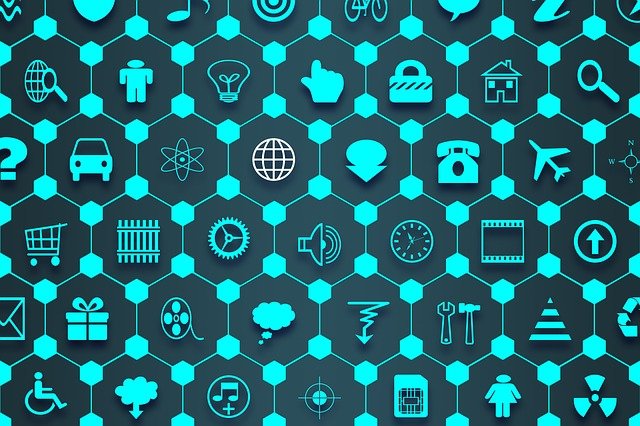
In the last few years, the majority of technological advancements related to IoT and eco-friendly solutions. While it might look so at first glance, app development, and environmental sustainability go well hand-in-hand. Through modern software, developers not only provide solutions to our problems but also avoid heavy resource usage.
Environmentally driven app development has changed the entire outlook of the industry. For example, by using advanced machines, we can avoid human error and production waste. Robots are now replacing regular workers, making big factories much cleaner and environmentally friendly.
Out of all the different solutions we’ve seen in the last few years, IoT stands out as a technology that can significantly improve our battle for the Earth. With these systems, we can better manage resources, reduce errors that lead to waste, and minimize energy consumption.
In this article, we highlight the best IoT solution that can protect the planet for years to come.
1. Energy usage
When we talk about environmental-friendliness, we should always start with energy management. In the end, lower consumption means lower production and, ultimately, less CO2 in the air.
With the Internet of Things, people can utilize electricity in a more respectable manner. Through smart energy management, families can limit their consumption and individual emissions. Not only that, but these systems can give you valuable insights as to how much energy you’ve used and how to use it more rationally in the future.
2. Waste management
The progressive increase in the global population is bound to have a negative impact on our planet. Besides depleting resources at a much faster rate, the bigger population also causes more human waste. As if that wasn’t enough, bad waste and recycling practices in many parts of the world have made the situation worse for everyone.
With IoT, waste facilities can combat this looming threat more efficiently. Management teams can now track data about the incoming trash allowing them to prioritize certain waste containers. They can also track the capacity and fullness of each container, ensuring that each one is filled to the top before deployment.
All these small things lead to better, more efficient scheduling, lower carbon footprint, and less back-and-forth with the half-empty waste disposal trucks.
3. Air monitoring
One of the biggest IoT app benefits comes in the form of air quality monitoring. As you well know, air pollution has been a thorn in our sides for quite a while, especially with the rise of forest fires. According to the WHO, approximately 99% of people inhale oxygen that isn’t according to the organization’s standards.
Besides having a direct impact on our lung and organ health, filthy air can also ruin flora and fauna. So, not only are we forced to inhale toxic particles, but we also have to eat them.
Luckily, IoT apps and sensors provide a partial solution to this issue. Public organizations can now monitor local air quality to track the biggest sources of pollution. That way, they can implement corrective measures that would prevent or at least slow down air contamination.
4. Cold-chain management
According to the official data, more than 35% of the total food supply (2.5 billion tons) goes to waste. In other words, this is a financial loss of approximately $1.2 trillion. While the waste of food is tragic by itself, especially considering the number of people starving, we also need to consider production resources.
Agricultural producers spend massive amounts on growing and harvesting these veggies and fruits and delivering them to our tables. For the most part, the waste is a result of poor temperature management, causing the food to rot during warehousing and transport.
IoT apps use wireless sensors to monitor temperature but also other environmental factors. With this software, a producer can ensure there is enough air and humidity in the room and that the temperature is just right.
5. Water monitoring
Water is a basic human right and a resource that we often take for granted. In fact, the way we’re going, there’s a good chance that half of the global population will encounter water-related issues by 2050.
The only saving grace is that there are methods that would help us utilize water in a much more suitable way. Specifically, by using IoT apps, we might reduce leakages that occur in our pipelines, pumps, and valves. The advanced leak detection software can pinpoint any damage to the infrastructure, so we can plug these leaks as soon as possible.
Aside from detecting leaks, IoT solutions can also monitor water quality. This is crucial if you have an older system, as it might indicate potentially harmful debris in our supply. Although water tracking is important for everyone, it’s vital for agricultural businesses and other high consumers.
6. Agricultural improvements
Based on everything said in the previous two entries, it becomes obvious that agricultural companies can benefit the most from these apps. Aside from improving storage and water usage, IoT can bring about other vital improvements.
The agricultural industry is suffering the most from climate change. Besides all the management problems, these businesses also struggle with a loss of crops due to extreme weather conditions, something that has become more frequent in the last few years.
IoT systems can implement smart farming practices that go hand-in-hand with sustainable environmental policies. The advanced technology allows geologists to gather data regarding soil quality, which is one of the main things affecting crops.
Aside from that, Internet of Things solutions can help with fertilization, seeding, fumigation, irrigation, and other routine tasks. Of course, having better weather insights also helps as it allows farmers to protect crops in certain situations. This not only reduces waste but also makes it easier for companies to predict profits.
Conclusion
Nowadays, IoT developers pay close attention to how their software will affect the environment. IT brands are constantly on the lookout for solutions that would improve efficiency, reduce waste while making the world a better place for all of us.